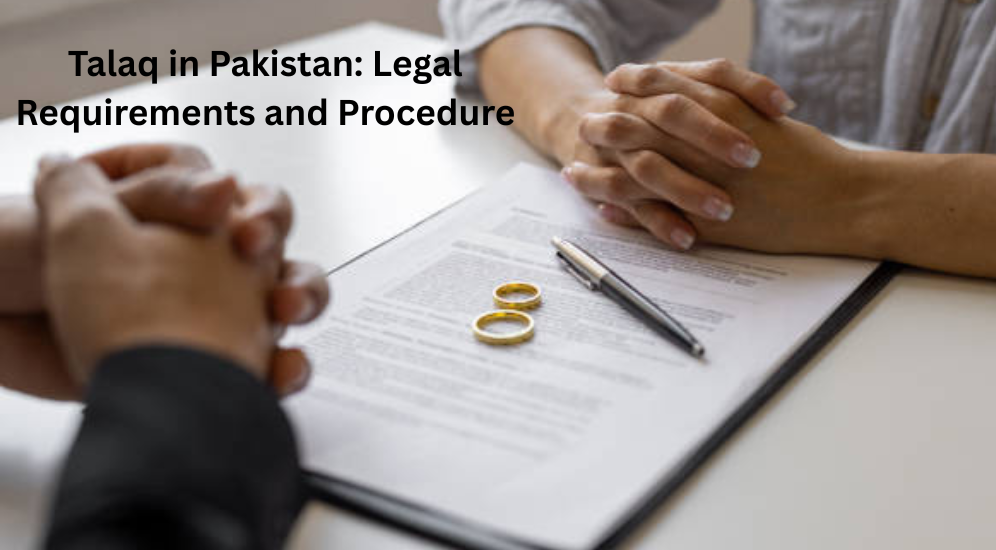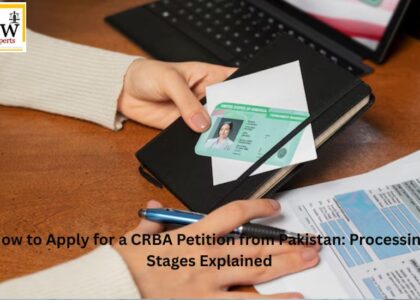Why Parents Need to Know About Talaq in Pakistan
Talaq, or Islamic divorce, is a significant process in Pakistan that affects families emotionally and legally. For parents, understanding the legal requirements and procedures of talaq is crucial to protect their rights and support their children. This guide explains the talaq process in simple terms, focusing on legal steps, parental roles, and resources in Islamabad. By staying informed, parents can navigate this challenging time with confidence and ensure compliance with both Islamic and civil laws.
Legal Framework Governing Talaq in Pakistan
Talaq in Pakistan is governed by a combination of Islamic principles and civil laws. Understanding these laws helps parents make informed decisions during the divorce process.
The Role of Islamic Law in Talaq
Islamic law, based on the Quran and Sunnah, guides the talaq process. It emphasizes reconciliation and fairness. The Quran encourages arbitration before divorce to preserve the marriage (Quran 4:35). Islamic divorce procedure requires patience and a structured approach to ensure both parties are treated justly.
Pakistan Family Law Ordinance 1961 and Talaq
The Muslim Family Law Ordinance 1961 is the primary legal framework for talaq in Pakistan. It outlines the procedure for divorce, including written notification and reconciliation attempts. This law ensures that talaq is registered and legally recognized, protecting the rights of both spouses.
Differences Between Islamic and Legal Divorce Procedures
While Islamic law allows verbal talaq, talaq law Pakistan mandates written documentation and registration with the Union Council. Islamic law focuses on spiritual and moral obligations, whereas civil law ensures legal accountability, such as issuing a NADRA divorce certificate.
Types of Talaq Recognized in Pakistan
Pakistan recognizes three main types of talaq, each with distinct procedures and implications.
Talaq-e-Ahsan
Talaq-e-Ahsan is the most preferred form of talaq. The husband pronounces talaq once during the wife’s state of purity (non-menstrual period) and abstains from intimacy during the 90-day iddat period. This allows time for reconciliation. If no reconciliation occurs, the divorce becomes final.
Talaq-e-Hasan
In Talaq-e-Hasan, the husband pronounces talaq three times over three consecutive months during the wife’s purity periods. If the couple does not reconcile after the third pronouncement, the divorce is finalized. This method also emphasizes reconciliation.
Talaq-e-Biddat (Triple Talaq) – Legal Status in Pakistan
Talaq-e-Biddat, or triple talaq, involves pronouncing talaq three times in one sitting. While still practiced, it is controversial and not fully endorsed by the Muslim Family Law Ordinance 1961. Courts may treat it as a single talaq, requiring proper legal procedures for validity.
Step-by-Step Talaq Procedure in Islamabad
Divorce in Islamabad follows a clear legal process to ensure fairness and documentation. Here’s how it works:
Written Notice of Talaq to Union Council
The husband must send a written talaq notice to the Union Council in the area where the wife resides. A copy of the talaq notice NADRA is also sent to the wife. Failure to notify the Union Council can lead to legal penalties, including fines or imprisonment.
Arbitration Council Formation and Role
Within 30 days of receiving the notice, the Union Council forms an Arbitration Council. This council, comprising representatives from both sides, attempts to reconcile the couple through discussions and mediation.
Reconciliation Period: The 90-Day Waiting Period (Iddat)
The 90-day iddat period begins when the Union Council receives the talaq notice. During this time, the couple can reconcile. If reconciliation fails, the divorce becomes effective after 90 days or, if the wife is pregnant, after the pregnancy ends.
Final Certificate of Talaq Issuance in Islamabad
Once the iddat period ends without reconciliation, the Union Council issues a NADRA divorce certificate. This certificate is the official proof of divorce and is recognized across Pakistan and internationally.
Important Legal Requirements for a Valid Talaq
For a talaq to be legally valid, specific requirements must be met.
Written Documentation and Legal Notice
The talaq must be documented in writing, often as a Talaq Nama (divorce deed). This document should clearly state the husband’s intent to divorce and be signed by witnesses.
Proper Notification to the Wife and Union Council
The husband must send a copy of the talaq notice to his wife and the Union Council. This ensures transparency and allows the wife to participate in reconciliation efforts.
Registration of Divorce in NADRA (Islamabad-Specific Guide)
After the talaq process is complete, the divorce must be registered with NADRA to obtain a divorce certificate. In Islamabad, visit the Union Council or NADRA office to complete this step. The certificate is essential for legal recognition, especially for remarriage or travel abroad.
Role of Union Councils in Islamabad in Talaq Cases
Union Councils in Islamabad play a critical role in the talaq process.
Jurisdiction of Union Councils in Islamabad
Each Union Council handles talaq cases based on the wife’s residence. For example, if the wife lives in G-11, the G-11 Union Council will process the talaq notice. Ensure you contact the correct council to avoid delays.
How Parents Can Support Their Children Legally
Parents can assist by ensuring all legal steps are followed, such as timely notification and registration. They can also hire a lawyer to guide the process and protect their children’s rights, such as custody and maintenance.
Rights and Responsibilities After Talaq
After talaq, both parties have specific rights and responsibilities.
Child Custody and Guardianship
Child custody is governed by the Guardians and Wards Act 1890, prioritizing the child’s welfare. Mothers typically get custody of young children, while fathers may have guardianship rights. Parents must agree or seek court intervention.
Maintenance of Wife and Children
The husband is responsible for providing maintenance to the wife during the iddat period and to the children until they reach adulthood. Courts can enforce maintenance orders if needed.
Mehr and Property Division
The wife is entitled to her mehr (dower) as agreed in the nikah contract. Pakistan follows a separate property regime, meaning each spouse retains their own property unless otherwise agreed.
Parental Role During and After the Divorce Process
Parents play a vital role in supporting their children through talaq.
Guiding Children Through Legal and Emotional Stress
Divorce can be emotionally challenging for children. Parents should communicate openly, reassure their children, and seek counseling if needed to help them cope.
Helping With Legal Procedures in Islamabad
Parents can assist by ensuring all paperwork, such as the talaq notice and NADRA registration, is completed correctly. They can also attend Arbitration Council meetings to support reconciliation efforts.
Ensuring Compliance With Islamic and Civil Obligations
Parents must ensure the talaq follows Islamic principles, such as fairness and patience, and complies with civil laws, like registering the divorce with NADRA.
Common Legal Mistakes in Talaq and How to Avoid Them
Avoid these common errors to ensure a smooth talaq process.
Oral Talaq Without Notification
Verbal talaq without written notice to the Union Council is not legally valid in Pakistan. Always document and notify the council to avoid legal issues.
Failure to Register Talaq in Islamabad
Not registering the divorce with NADRA can cause problems, such as difficulties in remarriage or legal disputes. Ensure the divorce is registered promptly.
Misunderstanding Reconciliation Period
Some couples mistakenly believe the iddat period is optional. This 90-day period is mandatory and provides time for reflection and reconciliation.
Legal Support and Resources in Islamabad
Navigating talaq can be complex, but help is available.
Where to Get Legal Help for Talaq in Islamabad
For expert legal assistance, contact SJ Law Experts. They offer professional guidance to ensure your talaq process is smooth and legally sound. Schedule your consultation today:
- Phone: +92 (0) 335-411-2288
- Email: SJLawExperts@gmail.com
- Office: No. 1, First Floor, Al Anayat Mall, Above Faysal Bank, G-11 Markaz, Islamabad, Pakistan
Trust SJ Law Experts to handle your case with professionalism, empathy, and precision.
Islamic Scholars vs. Family Lawyers – Who to Consult?
Consult Islamic scholars for religious guidance on talaq, such as its moral implications. For legal procedures, family lawyers are essential to ensure compliance with civil laws and proper documentation.
Important Family Law Offices and Helplines in Islamabad
In addition to SJ Law Experts, you can contact the Islamabad Union Councils or NADRA offices for assistance. The Ministry of Law and Justice also provides helplines for family law queries.
Talaq and Social Implications in Pakistani Society
Talaq carries social challenges that parents must address.
Dealing with Stigma and Family Pressure
Divorce can lead to social stigma, especially for women. Parents should support their children by fostering open communication and seeking community support to reduce pressure.
Educating Parents and Families on Rights
Many families are unaware of their legal rights during talaq. Educate yourself and others about custody, maintenance, and mehr to make informed decisions.
Conclusion: Empowering Parents With Knowledge About Talaq in Pakistan
Understanding the talaq process in Pakistan empowers parents to navigate divorce with clarity and confidence. By following the legal requirements, such as written notification and NADRA registration, and supporting their children emotionally, parents can ensure a fair and smooth process. For professional legal help, reach out to SJ Law Experts at +92 (0) 335-411-2288 or SJLawExperts@gmail.com. Stay informed, protect your rights, and guide your family through this challenging time with care and knowledge.





